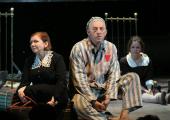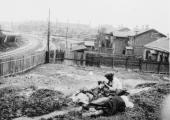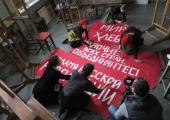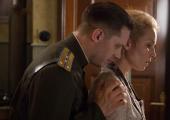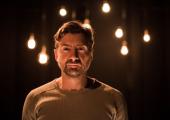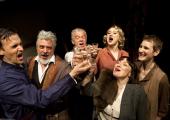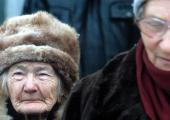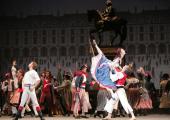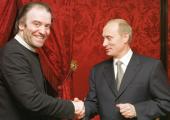Belarusian director's enthralling explorations of what makes Russia tick
The Belarusian director Sergei Loznitsa recently made an impact with the powerful In the Fog, a delicately balanced examination of the pressures at play in World War II Russia. Before that, his international calling card was My Joy (2010), a first venture into fiction. Both form part of a prodigious body of work otherwise dedicated to non-fiction. The release of the documentaries Blockade, Landscape and Revue in one package gives non-Russians a first chance to sample what dominates his output.
Blockade (2006) takes archive footage of the Leningrad Blockade of 1941 to 1944, when the city was sealed off by German forces with support from Finland. Loznitsa’s unvarnished chronological account of what was going within the city and the effect on its citizens is harrowing and at times difficult to watch. Revue (2008) is lighter and takes clips from Fifties and Sixties state-sanctioned propaganda films to show Russia as it was meant to be. Although sometimes funny, the insight into how the individual was subsumed into the collective is precious. Landscape (2003) is a contemporary portrait capturing the villagers of Okulovka as they wait for a bus with a constantly circling camera. Although comparable to the observational films of Chantal Akerman, it goes further by revealing who these people are with snippets of their conversations. When the bus finally comes, the resultant mêlée means all interaction is abandoned.
Loznitsa’s major preoccupation is what makes Russia and its people tick. Whether through fiction or fact, through the contemporary or historical he explores how Russia is defined, both by its individuals and the agencies delineating what the country actually is – or is meant to be. Naturally, he asks who he is as well. All three films are enthralling, intense, subtle and sympathetic. Above all, they are humanistic. As with In the Fog, Loznitsa keeps his distance and lets what’s seen tell its story.
This trio posits Loznitsa as a successor to Dziga Vertov, the director of Man with a Movie Camera (1929), the classic depiction of city life in Russia. This collection is highly recommended.
Visit Kieron Tyler’s blog
Overleaf: Watch Sergei Loznitsa discuss Revue
